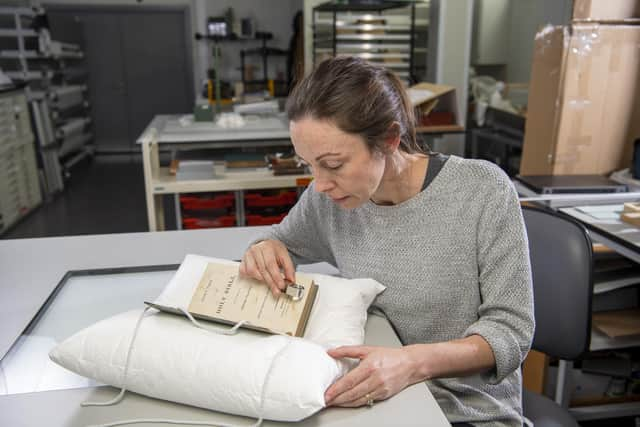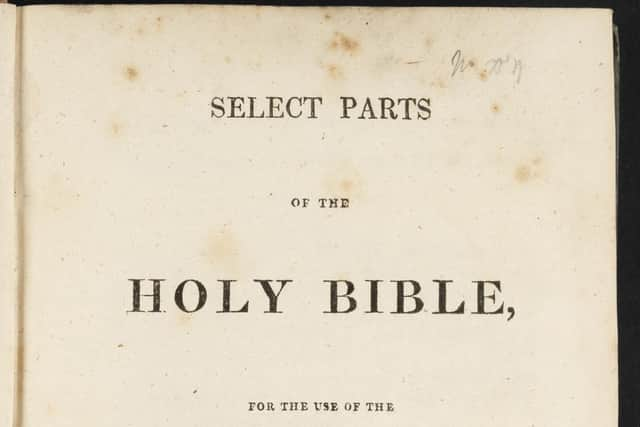Super rare and heavily censored 'slave bible' leaves Scotland on loan
The bible, published in 1807 and now held by Glasgow University, is one of only three surviving copies recorded in the world. The edition was heavily edited to remove passages that might be read as promoting freedom among enslaved people.
It was used by Christian Missionaries to educate and convert slaves, with some believing the redacted version was used to appease plantation owners concerned that religious teachings would inspire notions of liberation and rebellion in the fields.
Advertisement
Hide AdAdvertisement
Hide AdThe fragile copy of “Select parts of the Holy Bible for the use of the Negro Slaves in the British West-India Islands” sits among the 12,000 books donated to its library by 19th-century Glasgow insurance broker William Euing.
The bible has now been repaired and conserved ahead of its loan to a museum in Utrecht, Netherlands, for an exhibition on the evolution of Gospel music.
Julie Gardham, senior assistant librarian at the university, said: “We are delighted to loan this important and scarce Bible to the ‘Gospel’ exhibition.
“In omitting all references to freedom, it is a powerful and chilling reminder of how White Christians manipulated and misused even sacred texts to control the enslaved and legitimise slavery.”
The fragile bible was treated by the university’s conservation team in advance of its journey to the Netherlands to minimise the risk of further damage.


Keira McKee, a book conservator at Glasgow University, said: “The bible had detached boards, splits in the sewing, and extensive losses to the fragile paper covering material. This meant that the bible’s condition could quickly worsen with very little handling. Using a combination of linen threads and Japanese paper, the conservation treatment stabilised each of these issues, retaining as much original material as possible.”
The bible is on show as part of the exhibition “Gospel: Musical Journey of Spirit and Hope” at the Museum Catharijneconvent – the Dutch national museum of Christianity.
Passages missing from the bible include the lines from Galatians 3:28: "There is neither Jew nor Greek, there is neither bond nor free, there is neither male nor female: for ye are all one in Christ Jesus."
Advertisement
Hide AdAdvertisement
Hide AdAlso absent is Jeremiah 22:13: “Woe unto him that buildeth his house by unrighteousness, and his chambers by wrong; that useth his neighbour’s service without wages and giveth him not for his work.”


Meanwhile, other pro-slavery passages remain.
A spokesperson for the museum said: “The Slave Bible is a key object in our exhibition about gospel music. It is an example of how white Christians used the bible as a tool of power to legitimise and preserve the institution of slavery. Not only in the British West-India Islands, where this book was used by British missionaries, but also in, for example, Surinam, a Dutch colony and the United States.
“In these places, bible texts were used to legitimise slavery and other texts were censored and kept away from the enslaved. However, these measurements did not prevent faith from taking root on the plantations.
"The passages about freedom that were omitted turned up in spirituals, the songs of enslaved people in the United States. We are very fortunate and proud that we can show this impressive object in our exhibition.”
Comments
Want to join the conversation? Please or to comment on this article.